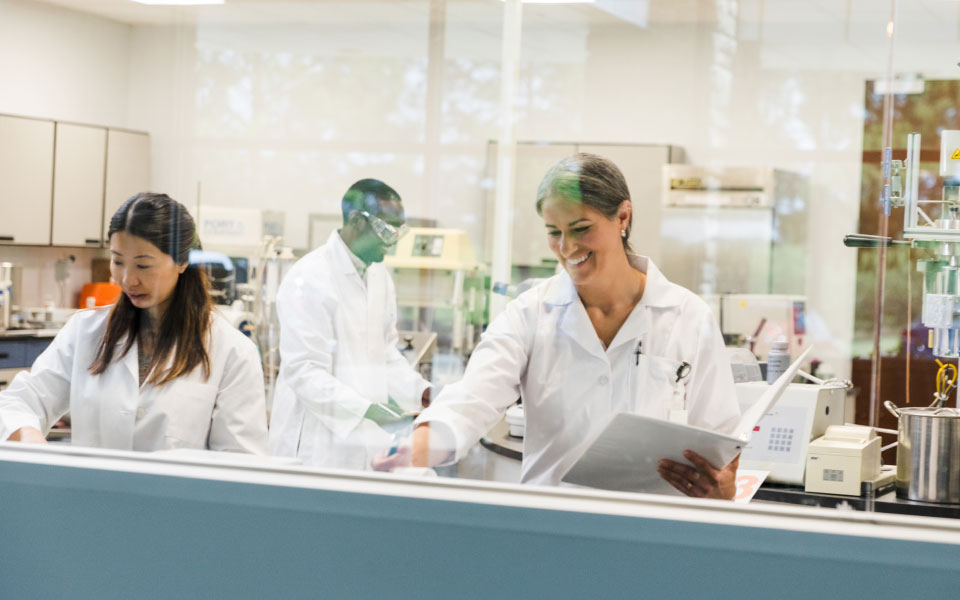In June 2025, Connecticut lawmakers approved an enhancement of the state’s research and development (R&D) tax credit to boost innovation and economic growth. Qualifying corporations are now able to generate more free cash flow via a greater percentage of the credit exchange rate. This should enable companies to utilize the extra cash flow for additional R&D expenditures.
Connecticut R&D Credit Overview
Research and development expenses are those expenses that may be deducted under IRC § 174, as in effect May 28, 1993, and basic research payments as defined under IRC § 41, provided the expenditures and payments are:
- Paid or incurred for the research and experimentation and basic research conducted in Connecticut; and
- Not funded, as provided in IRC §41(d)(4)(H), by any grant, contract, or otherwise by a person or governmental entity other than the taxpayer unless the other person is included in a combined return with the person paying or incurring such expenses.
Currently, only C corporations may take advantage of Connecticut’s R&D program, although there are ongoing discussions about extending the R&D credit to pass-through entities (partnerships and S corporations) and sole proprietorships, as discussed below.
Enacted and proposed changes include the following:
Enacted Increase in R&D Credit Exchange Rate for Biotech Companies
- Purpose: The enacted expansion supports the biotech industry in Connecticut and helps these companies free up cash flow for further research and development.
- For whom: This change specifically benefits biotech companies taxed as C corporations with less than $70 million in sales that are not yet profitable.
- What it does: It increases the rate at which these companies can exchange their unused R&D tax credits with the state for cash.
- Rate increase: The exchange rate goes from 65% to 90% of the credit’s value.
- Effective date: This change is effective Jan. 1, 2025.
Proposed Extension of the R&D Tax Credit to Pass-Through Entities and Proprietorships
- Purpose: House Bill 7008 aims to level the playing field by allowing pass-through entities, their owners and sole proprietorships, which are currently excluded from the benefits of the R&D tax credit, to access this valuable incentive.
- For whom: House Bill 7008, if passed and enacted, would allow pass-through entities, their owners and sole proprietors who are engaged in performing qualifying R&D activities in Connecticut to claim the R&D tax credit.
- What it does: If passed, these entities could claim a 6% credit against the state income tax for qualifying R&D expenditures.
- Effective date: Although subject to change, the bill’s effective date would be effective for years beginning on and after Jan. 1, 2026.
Please note that with these enacted and proposed changes, companies must still ensure that they have the proper supporting documentation in place to support the R&D credit or exchange being claimed and any potential Connecticut Department of Revenue Services examinations. The documentation should include:
- Records for employee wages (like W-2s, payroll registers, and time tracking data)
- Supply costs (such as receipts, invoices, and general ledger entries)
- Contract research expenses (invoices, 1099s, and contracts)
- Computer rental or lease expenses (lease agreements and usage logs)
Qualitative Documentation needs to show that the research activities demonstrate a permitted purpose, technological nature, elimination of uncertainty, and a process of experimentation. Examples of such documentation include patents, project lists, research plans, meeting minutes, technical reports, and testing logs.
To take full advantage of these tax credits, companies must:
- Maintain contemporaneous records
- Organize documentation by project
- Link expenses directly to qualified research activities
- Use clear and detailed descriptions
- Ensure consistency in expense documentation across tax years
To claim the enhanced credit, businesses must submit specific forms, such as Form CT-1120RC or Form CT-1120 RDC, and attach them to their Business Tax Credit summary.
To learn more about Connecticut’s expanded R&D tax credit program for biotech and small businesses, please contact the CBIZ State & Local Tax team.
© Copyright CBIZ, Inc. All rights reserved. Use of the material contained herein without the express written consent of the firms is prohibited by law. This publication is distributed with the understanding that CBIZ is not rendering legal, accounting or other professional advice. The reader is advised to contact a tax professional prior to taking any action based upon this information. CBIZ assumes no liability whatsoever in connection with the use of this information and assumes no obligation to inform the reader of any changes in tax laws or other factors that could affect the information contained herein. Material contained in this publication is informational and promotional in nature and not intended to be specific financial, tax or consulting advice. Readers are advised to seek professional consultation regarding circumstances affecting their organization.
“CBIZ” is the brand name under which CBIZ CPAs P.C. and CBIZ, Inc. and its subsidiaries, including CBIZ Advisors, LLC, provide professional services. CBIZ CPAs P.C. and CBIZ, Inc. (and its subsidiaries) practice as an alternative practice structure in accordance with the AICPA Code of Professional Conduct and applicable law, regulations, and professional standards. CBIZ CPAs P.C. is a licensed independent CPA firm that provides attest services to its clients. CBIZ, Inc. and its subsidiary entities provide tax, advisory, and consulting services to their clients. CBIZ, Inc. and its subsidiary entities are not licensed CPA firms and, therefore, cannot provide attest services.















